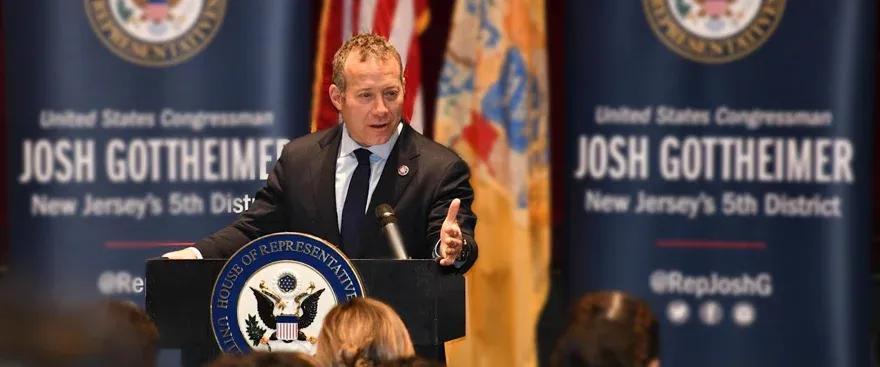New Jersey Dem Invests in His Donors’ Private Equity Firm

In a move that has raised eyebrows and questions about the intersection of politics and finance, New Jersey Democratic Representative Josh Gottheimer recently purchased stock in a major private equity firm just days before his fundraising committee received substantial donations from the firm's executives.
According to financial disclosures, on May 6, Rep. Gottheimer bought up to $15,000 worth of stock in Kohlberg Kravis Roberts (KKR:US), one of the world's largest private equity companies. Mere days later, on May 12 and May 19, Gottheimer's joint fundraising committee with Representative Steven Horsford (D-Nev.) received $85,400 in contributions from KKR executives. This amount constituted nearly the entire $92,000 the committee reported to the Federal Election Commission in its pre-primary disclosure.
The donors included prominent figures within KKR: Pete Stavros and Nate Taylor, co-heads of global private equity; Ryan Stork, Chief Operating Officer; and Raj Agrawal, Global Head of Infrastructure. Their contributions have sparked discussions about potential conflicts of interest, given the timing of Gottheimer’s stock purchase.
Adding another layer of complexity to the situation, on June 10, S&P Dow Jones Indices announced that KKR’s stock would be added to the S&P 500 Index later in the month, a development that led to a more than 10 percent increase in the stock's value. This significant rise has drawn further attention to Gottheimer’s timely investment.
KKR is not a common stock among congressional members. Data from the Capitol Trades website indicates that only two other members of Congress have bought KKR stock since 2021, highlighting the uniqueness of Gottheimer's investment.
When questioned about the stock purchase, a spokesperson for Gottheimer clarified that his investment decisions are managed by an independent third party. “Prior to taking office, Congressman Gottheimer turned over management of his retirement savings and investments to a third party, who has full investment discretion,” the spokesperson explained. “Throughout his time in Congress, decisions related to his managed investments have been made at the direction of that third party.”
The spokesperson's statement aims to distance Gottheimer from any direct involvement in the investment decisions, but it has not entirely quelled concerns about the appearance of impropriety. As discussions about the ethical boundaries of political fundraising and personal investments continue, this case serves as a reminder of the intricate and often controversial relationship between lawmakers and financial interests.
This incident underscores the need for ongoing scrutiny and transparency in the financial activities of public officials, particularly when significant campaign contributions are involved. It remains to be seen whether this situation will prompt further investigation or lead to changes in how such matters are regulated in the future.